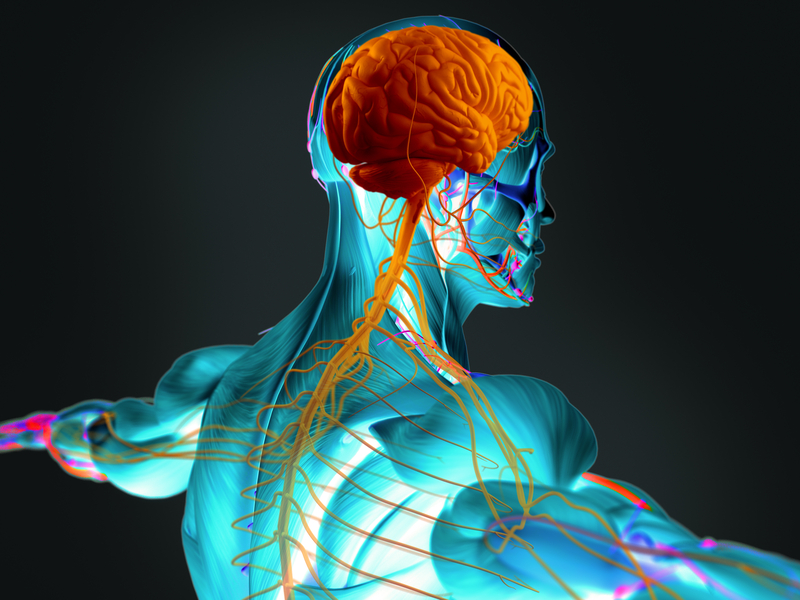Let us take a moment to appreciate the complexity of the human body—both yours and mine—and how this complexity affects how and why we sleep.
For that, we will turn our attention to the limbic system located in the brain.
You don’t hear much about this group of structures, though you feel their effects every day. They play a big role in our lives, being involved in emotions and memory. This means, further, they play a role in motivation and behavior regulation.
Long term memory
If you read some journal of yours from a couple of years ago, depending on the amount of detail in the entry, you might be struck by some of the changes to your memory.
You might remember someone you used to talk to every day. Today, you no longer do so. You’ve forgotten a lot of the particulars.
Eight years ago, I had a co-worker who’d often recount her difficulties with her classes. I’d spend time trying to motivate her. When it came to school, she had an interest but was underconfident. She locked up when the instructor explained something. Various thoughts distracted her.
All I did was explain some of the concepts she was having trouble with in school in a new way. When she and I were talking, it would be informal, and casual. I wrote about it in my journal because I liked the way she said, “You should be my professor.”
A professor? No, not me. The sedentary nature of academia doesn’t appeal to me in the least. I like to be up and moving about.
Still, I think professors are usually pretty smart.
I took it as a compliment.
Eight years on, I forgot about the particulars of this conversation. My brain didn’t need to retain all or even many of the details. The consolidated memory became a summary: “We used to talk about her classes.”
Your limbic system has to do this, specifically the hippocampus. If it didn’t, there would simply be too much information and it would slow down the processing power of your brain.
Hippocampi (there are two of them) look like seahorses. Memories form there mostly when you sleep. The memories are then stored in the cerebral cortex.
Since we’re talking about memory, learning, and understanding goes on there too.
It also makes new nerve cells.
Emotional conversations and experiences
These conversations about my co-worker and her school work don’t have near the resonance that my memories of a girlfriend that I had when I was 19 years old.
I can tell you what song was playing when we met. I can tell you what she wore. I can tell you the mannerisms she had that I thought were amusing/sexy. I can tell you how it felt for me when I first kissed her.

I was in love. I did everything that I could to hang onto that relationship for a year and I can tell you in detail about many of the dates and phone conversations.
There’s a certain power that memory has when it comes to emotion—any kind of emotion.
Emotion helps you remember.
I have my amygdala to thank for being able to remember all kinds of things about that ex-girlfriend, and the lessons I learned from that relationship.
Take it from me, you can’t love someone so much that you can override their early childhood experiences. Or maybe you can sometimes, but not always. Her father had left her and her mother when she was very young and she was still struggling with that when she was 19.
It’s an important lesson. The amygdala makes sure you remember it.
Fear
There’s a two-lane highway that cuts through the desert in southern Arizona.
From time to time over the years, I’ve read about it in the paper. I’ve seen stories about it on the TV. When I worked in a town on this road, I heard stories about it.
I’ve read about drunks getting run over in the middle of the road. I’ve read about head-on collisions. I’ve heard how cattle and horses escape their enclosures and go for a walk out in the middle of the road in the middle of the night. They get hit by motorists and the occupants of the motor vehicles get severely injured.
I’ve driven this road for many reasons. For fun (it leads to a beach). For work. For family. For peace (dark skies full of stars, and a restaurant that was good at a little airport).
I think of the many who’ve crossed the center line and ran head-on into an oncoming driver.
I think of the many large mammals who’ve wandered out in the middle of the road and gotten hit and did extensive automotive front-end damage.
I think of the people who’ve been drunk and high and have walked along the shoulder.
Thank you, cingulate gyrus, for this.
Mild fear translates into caution. And that’s exactly what I need to be when I’m driving Highway 86.
Balance and perspective
And I don’t have paralyzing fear when I drive Highway 86. Rather, it’s practical fear. I remember what can happen. I think about how to prevent the bad things.
I pay fucking attention! If I ever see a driver crossing the center line and he looks like he or she could collide with me, I slow down, and move to the shoulder.
Any road that reminds me of Highway 86, even if it’s in, say Colorado, New Mexico, or Texas, I remember what can happen.
My hypothalamus helps me keep it in perspective, in balance.
It’s a great limbic system organ. Works well with the cingulate gyrus.
Voluntary movements
Would the ex-girlfriend have talked much to me if I had been herky-jerky?
How about the ex-coworker who was going to school?
I’ve had close calls on Highway 86. I’ve had to stop and drive slowly around a horse and cow on the road. I’ve had to slow down a lot to avoid missing another motorist who was passing someone. Would they have not gone so well if my basal ganglia were damaged?
The girlfriend didn’t work out well, so maybe that didn’t matter, but I’ve reached my destination safely many times on 86, so for that I can be grateful.
Don’t know if I can say that my basal ganglia are awesome but they seem to work.
All together now…
The limbic system is a rough grouping, artificially grouped together because they’re involved in emotion, motivation, memory, and behavior regulation. Key parts include the amygdala, hippocampus, thalamus, hypothalamus, basal ganglia, and cingulate gyrus.
Memories are written when we sleep. Processing of those memories goes on when we dream while we sleep.
It’s interesting how much emotion impacts memory. I can remember the ex-girlfriend so well. The work friend with the school problems, not as much.
It’s also interesting how the different senses are expressed in dreams. Most are based on sight and hearing, but the subconscious uses the other three too.
They’re all part of the deep, inner workings of the brain.
Love and appreciate each part. Only then will you be able to go to bed to take care of them when there are competing priorities.
Also on the blog:
